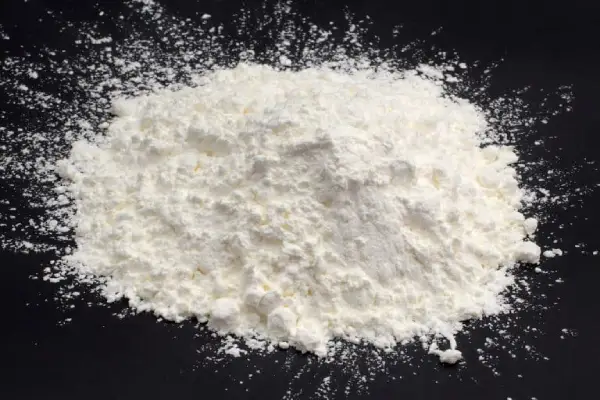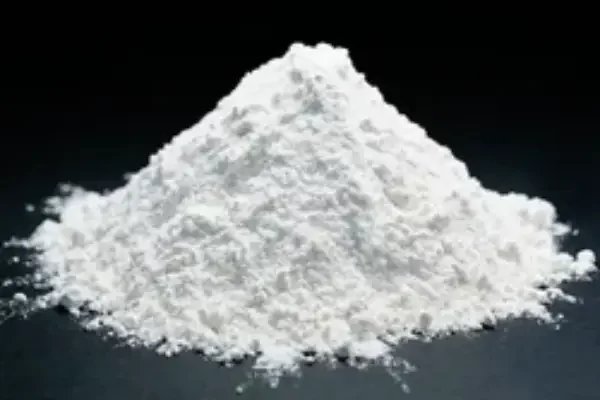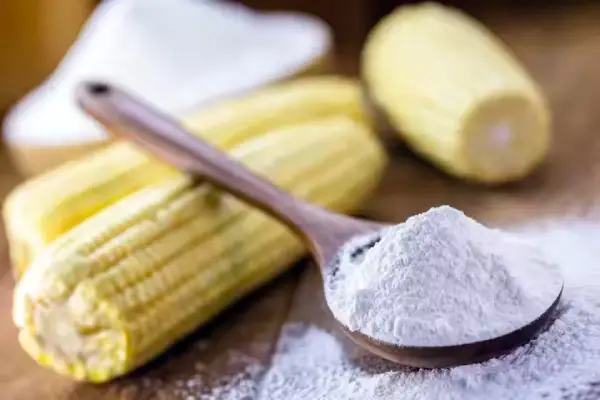Difference between food grade corn starch and modified corn starch
The difference between food grade corn starch and modified corn starch lies in their processing, properties, and applications:
1. Processing:
- Food Grade Corn Starch: This is the natural starch extracted from corn kernels through basic processing steps such as cleaning, wet milling, separation, and drying. It retains the natural properties of corn starch.
- Modified Corn Starch: This starch has undergone physical, chemical, or enzymatic modification to alter its original properties, such as enhancing its resistance to heat, acid, and freezing, or improving its thickening ability.
2. Properties:
- Food Grade Corn Starch: It has standard properties and is primarily used for thickening, stabilizing, and adding texture to food products. It has limited heat and acid resistance.
- Modified Corn Starch: It has enhanced characteristics, such as better heat resistance, stability under acidic conditions, and improved freeze-thaw stability. It can also have modified texture and viscosity.
3. Applications:
- Food Grade Corn Starch: Commonly used in soups, sauces, puddings, baked goods, and ice cream for thickening and stabilizing.
- Modified Corn Starch: Used in more specialized food products, such as ready-to-eat meals, baby foods, convenience foods, and products requiring heat or acid stability.
4. Cost:
- Food Grade Corn Starch: Typically less expensive due to its simpler processing.
- Modified Corn Starch: More expensive due to the additional processing steps.
Summary:
- Food Grade Corn Starch: Natural, unmodified, suitable for basic food applications.
- Modified Corn Starch: Altered to improve performance, suitable for specific, high-demand food applications.
Introduction of Food grade corn starch
Food grade corn starch is a versatile, high-quality starch extracted from the endosperm of corn kernels. It is widely used in the food industry for its thickening, gelling, and stabilizing properties. It is derived through a process of milling, washing, and refining to ensure it meets the high purity and safety standards required for food consumption.
Key Features of Food Grade Corn Starch
Purity: Food grade corn starch is refined to remove impurities, ensuring it is safe for human consumption and suitable for various food applications.
Texture and Consistency: It provides a smooth, thick texture and can be used to improve the mouthfeel and consistency of food products.
Neutral Flavor: Food grade corn starch has a neutral taste, making it ideal for use in both sweet and savory foods without altering their flavor profile.
Versatile Use: It can be used as a thickener, binder, stabilizer, and emulsifier in a wide range of food products.
Applications of Food Grade Corn Starch
Sauces and Gravies: Used to thicken liquids and create a smooth, stable consistency.
Beverages: Added to drinks for texture, such as in smoothies or certain dairy-based beverages.
Baked Goods: Helps in controlling moisture, enhancing texture, and improving shelf life in cakes, pastries, and other baked items.
Snack Foods: Used in the production of snack coatings and as a filler in processed snack products.
Puddings and Custards: Provides the right texture and consistency, ensuring a smooth, creamy mouthfeel.
Ice Cream and Frozen Desserts: Acts as a stabilizer to prevent ice crystals from forming and maintain smoothness.

Advantages of Food Grade Corn Starch
Natural and Safe: Food Grade Corn Starch is a natural ingredient and is considered safe for consumption by regulatory bodies like the FDA and EFSA when used in accordance with recommended guidelines.
Non-GMO Options: There are non-GMO certified variants of food grade corn starch, catering to the growing demand for GMO-free products.
Easily Digestible: Corn starch is often easier to digest than other starches, making it a suitable choice for individuals with digestive sensitivities.
Food grade corn starch is a highly functional and reliable ingredient in the food industry, offering a range of applications from thickening and binding to stabilizing and emulsifying. It is a staple in both home kitchens and industrial food production, prized for its consistency, versatility, and neutral flavor.
Introduction of Modified Corn Starch
Modified corn starch is a chemically or physically altered form of corn starch designed to enhance its properties and expand its applications in various industries, particularly in food production. Unlike regular corn starch, which has limited functional properties, modified corn starch undergoes processes like heat, acid, or enzymatic treatment to improve its stability, thickening power, texture, and resistance to various environmental conditions (like heat, acid, and freezing).
Benefits of Modified Corn Starch
Improved Stability: Modified corn starch often have enhanced resistance to heat, acid, shear, and freezing, which makes them more stable in processed food products.
Improved Texture: Modified corn starch can provide a smoother, more desirable texture in foods and beverages. This is crucial for products like sauces, dressings, and ready-to-eat meals.
Enhanced Thickening Power: Modified corn starch can thicken foods more efficiently at lower concentrations compared to regular starch.
Prevents Retrogradation: Retrogradation (the process where starch gel forms crystals over time, leading to syneresis or “weeping”) is minimized in modified starches, which helps preserve texture and consistency in frozen or refrigerated products.
Instantaneous Use: Pregelatinized starches can be used in instant foods without the need for cooking, speeding up preparation time.
Tailored Properties: Through modification, starches can be tailored for specific functions like improved freeze-thaw stability or increased viscosity at lower temperatures.
Applications of Modified Corn Starch
1. Food Industry
Sauces and Gravies: Modified corn starch is often used for their ability to maintain thickening power and smooth texture during heating and cooling.
Beverages: Used in drinks and smoothies to improve mouthfeel and texture.
Bakery Products: Provides moisture retention, texture control, and stability in fillings, cakes, and pastries.
Frozen Foods: Prevents syneresis and improves texture after freezing and thawing.
Confectionery: Helps with the consistency of jellies, candies, and other sweet products.
Prepared Meals: Used in instant soups, noodles, gravies, and ready-to-eat meals for better texture and easier preparation.
2. Non-Food Applications
Pharmaceuticals: Used as a binder in tablets and capsules.
Cosmetics: Utilized in products like creams and lotions for its thickening and stabilizing properties.
Paper and Textiles: Modified corn starch can be used in the production of adhesives and coatings.

Advantages of Modified Corn Starch
Versatility: The ability to modify starch in various ways allows for its use across a wide range of food and industrial applications.
Cost-Effective: Modified corn starch can be a more cost-effective option compared to other thickeners or stabilizers, making it a popular choice in many food processing applications.
Improved Functional Properties: Provides enhanced properties such as better viscosity, improved texture, freeze-thaw stability, and longer shelf life.
Modified corn starch is a highly versatile ingredient, significantly enhancing the performance of food products and industrial applications. It provides improved functionality, stability, and texture compared to regular corn starch, making it an essential component in the food industry, pharmaceuticals
Why Choose Chempora food grade corn starch and modified corn starch?
Chempora offers high-quality food grade corn starch and modified corn starch, which are widely used in the food and beverage industry due to their versatility and beneficial properties. Here are some key reasons why you should choose Chempora’s corn starch and modified corn starch:
1. High Purity and Quality
Chempora’s food grade corn starch is refined to meet stringent quality standards. It is made from non-GMO corn, ensuring purity and safety for use in food products.
2. Customizable Modified Starch
Chempora provides various types of modified corn starch tailored to different food applications. These modifications improve the starch’s performance in areas such as texture, shelf life, and stability under various cooking or storage conditions.
3. Improved Functional Properties
Modified corn starch has enhanced properties such as improved thickening, gelling, and emulsifying capabilities. It is especially useful in food products like sauces, dressings, puddings, soups, and processed foods.
4. Cost-Effective and Sustainable
Chempora’s starches offer an affordable solution to food manufacturers looking to enhance their product formulations without compromising on quality. Additionally, corn starch is a renewable resource, making it a more sustainable option compared to other additives.
5. Compliance with Food Safety Standards
Chempora ensures that all food-grade corn starch and modified starch products comply with global food safety standards and regulations, including FDA and EU approvals, giving customers confidence in product quality and safety.
6. Wide Range of Applications
Corn starch and modified starch are used in a wide array of food products, such as bakery items, snacks, beverages, dairy products, and confectionery. They act as thickeners, stabilizers, and texture enhancers, making them indispensable in modern food processing.
7. Global Availability and Support
With a global network and experience in international trade, Chempora ensures timely delivery, competitive pricing, and excellent customer support for its starch products worldwide.
Choosing Chempora’s food grade corn starch and modified corn starch means choosing a trusted partner that can provide high-quality ingredients with reliable performance across your food products.


